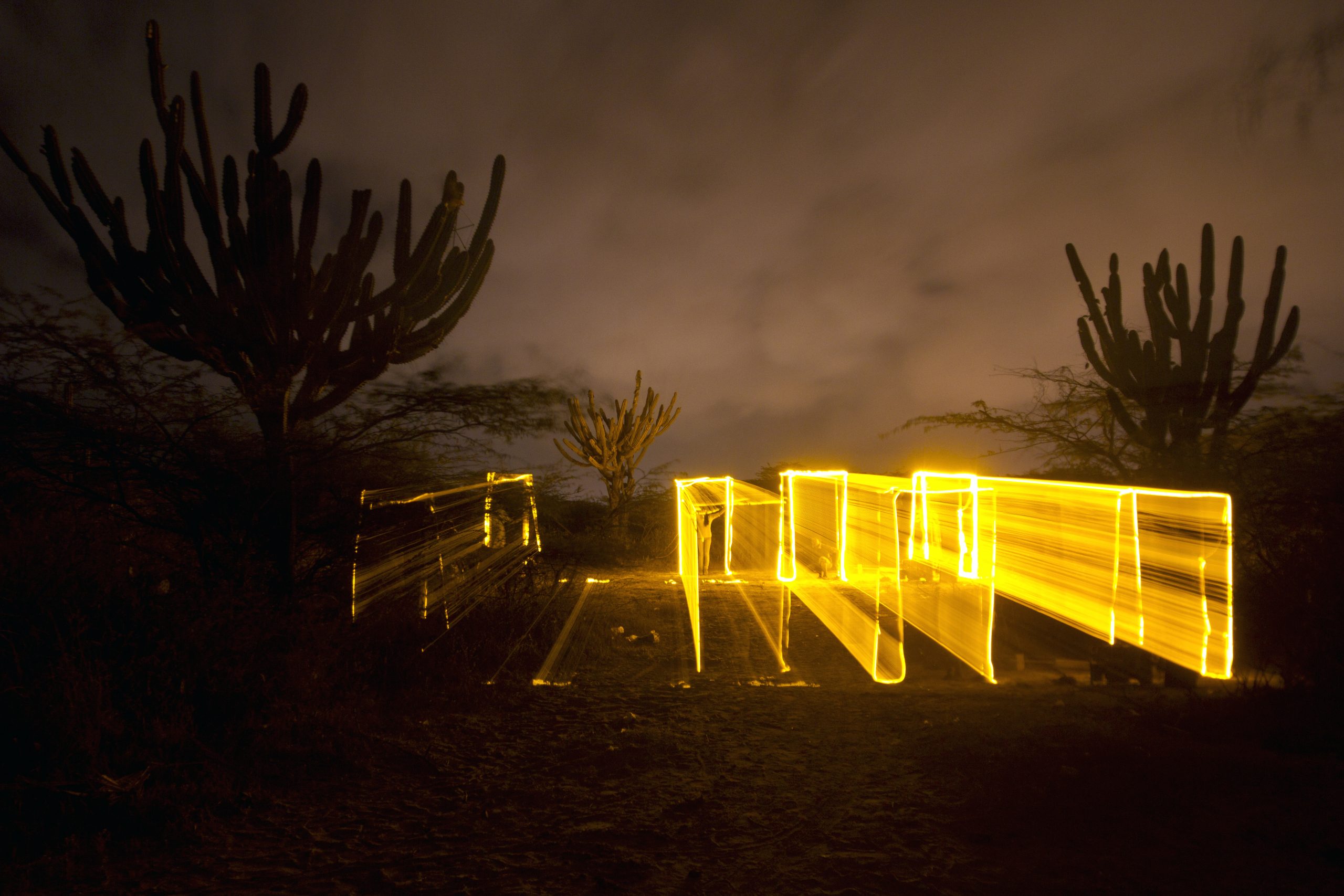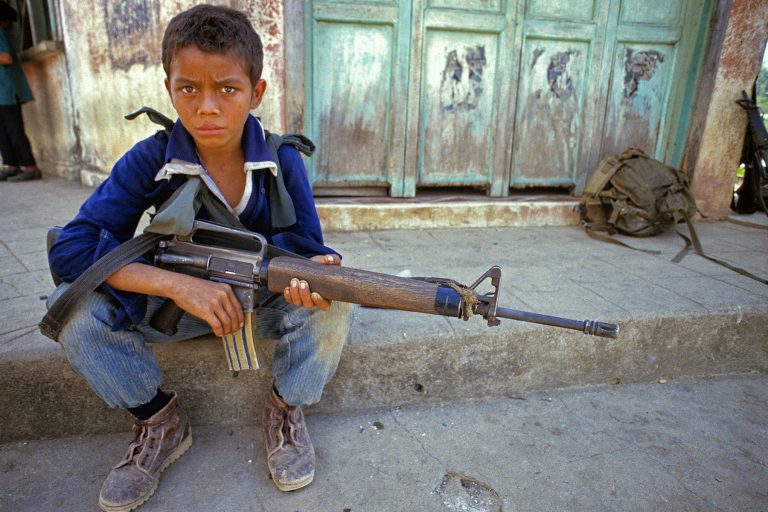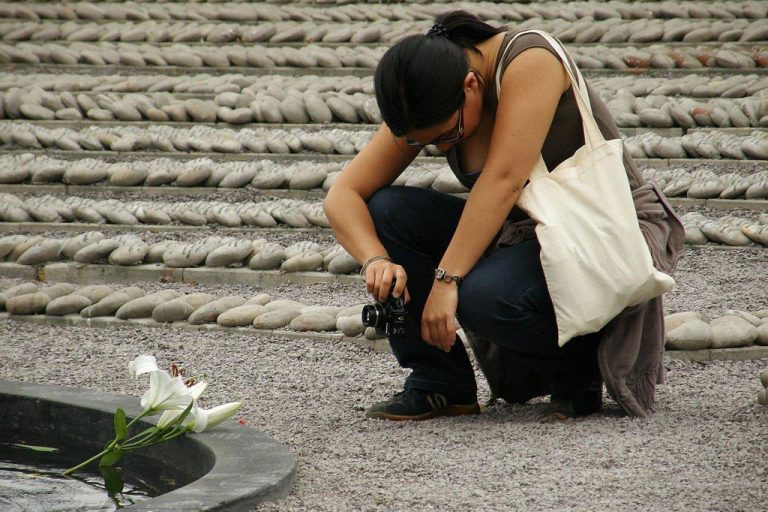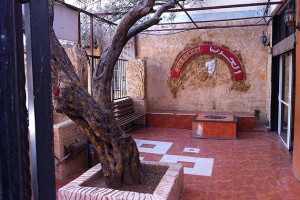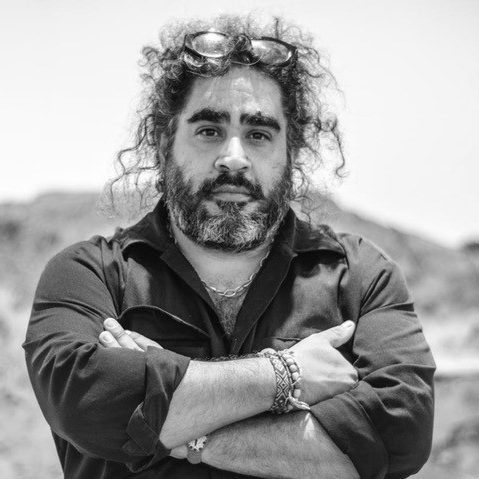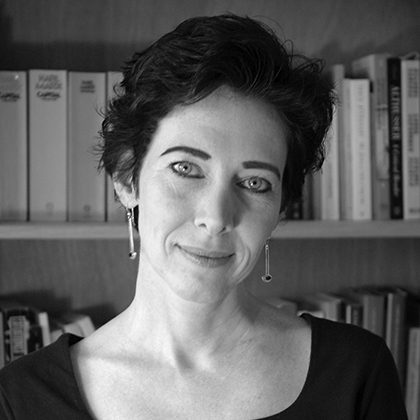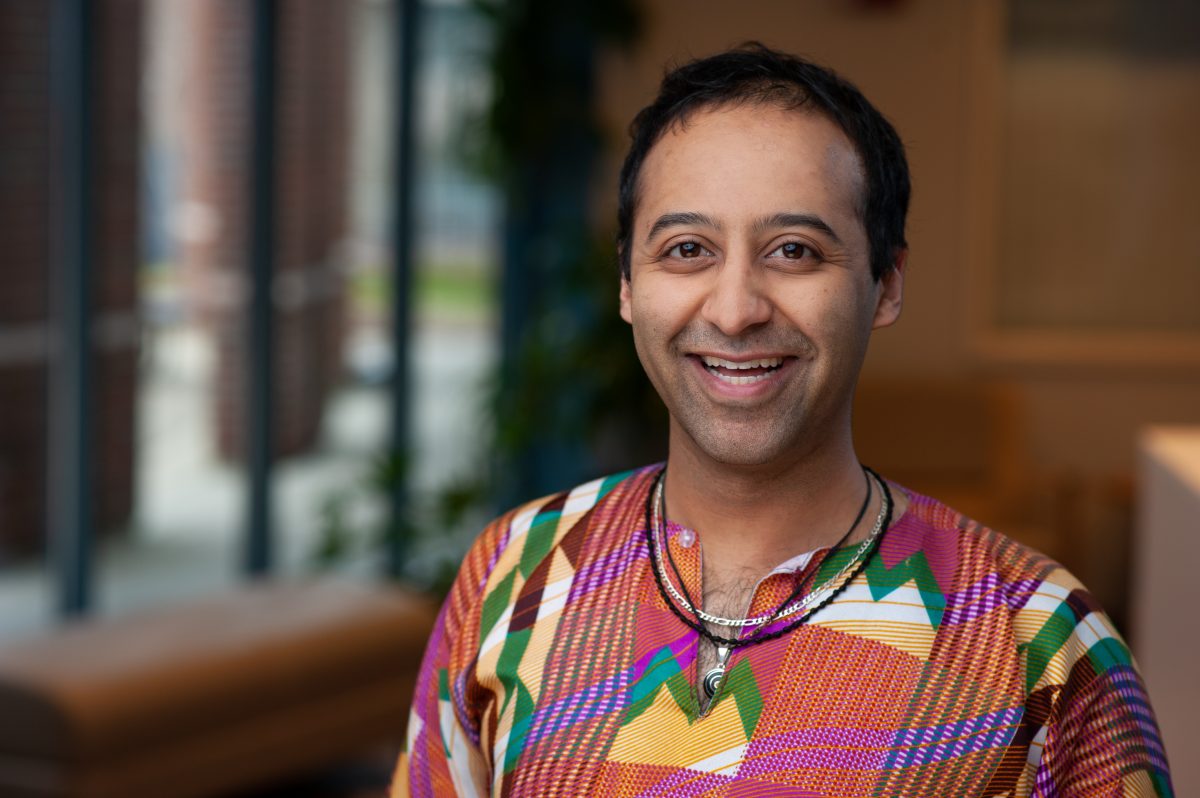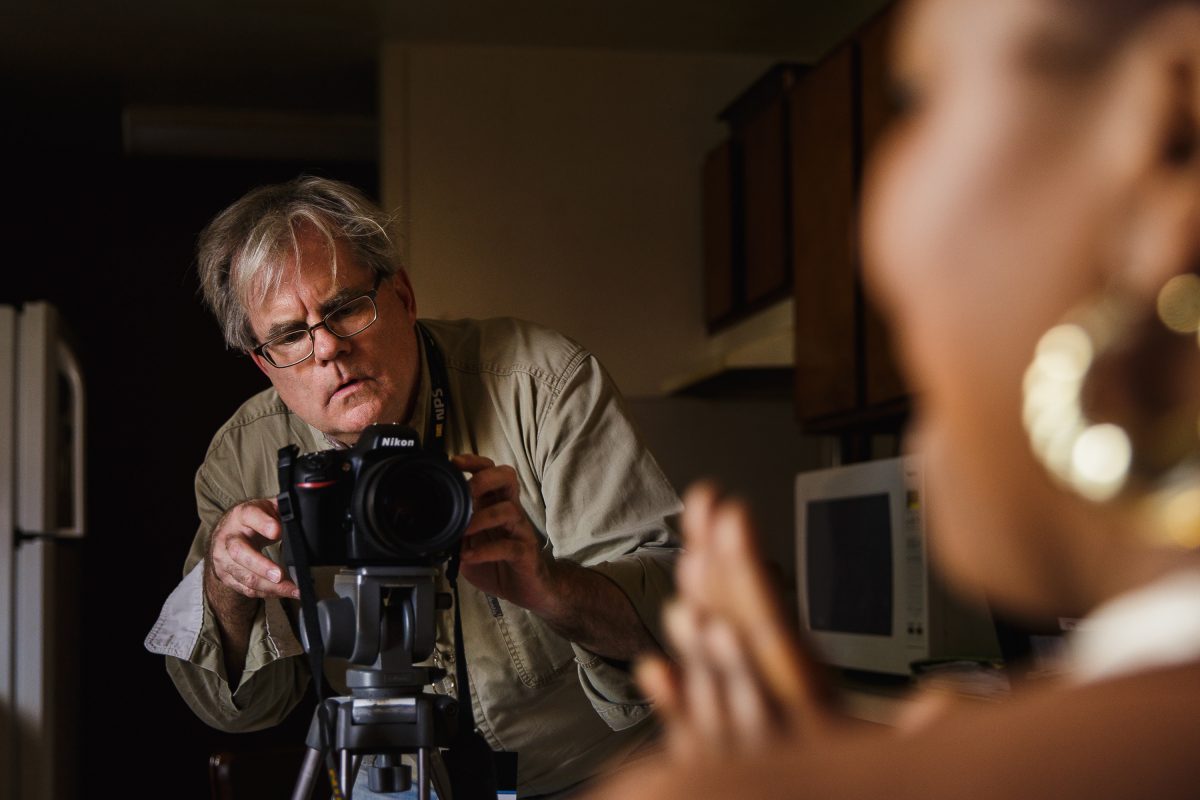Reservoirs of the Imaginary
February 26, 2025 | 2:00 PM - 3:30 PM | Homer Babbidge Library
Join us for a talk with artist Liam Gillick as he explores his work, from historical figures to modern media, and how post-WWII efforts to reshape human relationships have influenced his art.
Representing the Holocaust: Prussian Blue
November 21, 2024 | 4:00 PM - 5:30 PM | Homer Babbidge Library
Join us for a panel that delves into the power of art in the face of genocide, focusing on Yishai Jusidman’s Prussian Blue exhibition currently on display at UConn, and its use of visual imagery to process Holocaust memory and ethical reflection.
Theatre & Human Rights: The Politics of Dramatic Form
November 20, 2024 | 4:00 PM - 5:30 PM | Homer Babbidge Library
Stage director, designer, and Distinguished Professor of Drama Gary English introduces his newly released book which examines how dramatic form and structure can interrogate theoretical and practical questions in human rights.
‘Künü: A Space for Dialogue’ with Filmmaker Francisco Huichaqueo Pérez
April 4, 2024 | 2:00 PM - 4:00 PM | Homer Babbidge Library, Class of '47 Room
Francisco Huichaqueo joins the Research Program on Global Health & Human Rights for a screening of Künü, a documentary that captures the collaborative efforts of 80 Mapuche communities to reclaim part of their ancestral lands from a large transnational forestry company in Chile.
‘Sama in the Forest’ with Coralynn V. Davis
March 25 | 3:30 PM - 5:00 PM | Homer Babbidge Library, Class of '47 Room
Join the Human Rights Film+ Series for a screening of Sama in the Forest with film producer and academic Coralynn V. Davis. This community-based production delves into the subversive role women’s folktales can play in a patriarchal society. Set in the region of Mithila, in India, Sama in the Forest explores the power of stories to shape, challenge, and change our understanding of the world.
An Inventory and Index for Political Apologies: Memorial Architecture as Moral Transformation?
February 16, 2024 | 11:00 AM - 1:00 PM | The Dodd Center for Human Rights
Nicholas Smith, Professor of Philosophy and Justice Studies (University of New Hampshire) joins the Research Program on Arts & Human Rights for a talk on the question “How do examples of memorial architecture score on metrics for political apologies?”
Berlin: The Guild Environment
February 16, 2024 | 2:00 PM - 4:00 PM | The Dodd Center for Human Rights
Valentina Rozas-Krause, Assistant Professor of Design & Architecture at Universidad Adolfo Ibáñez and a Harvard University Radcliffe Fellow, discusses Berlin’s built environment with a focus on its postwar memorials. In memorials, she finds a ‘cult of apology’ embedded within the cityscape, offering insights into the role memorials play in symbolic and material reparation after political conflict.
Subverting Statues: Race, Space, Performance, and the Arab American National Museum
March 9, 2023 | 12:30 PM - 2:00 PM | The Dodd Center for Human Rights
In 2005, the Arab American National Museum (AANM) opened on the site of a former furniture store, opposite the former city hall of Dearborn, MI, a city often referred to as “the heart of Arab America.” At its founding, the museum sat across the street from a statue of the former, long-serving, Dearborn mayor Orville Hubbard who explicitly referred to Arabs as “n******”. Drawing on his fellowship at AANM this academic year, Asif Majid asks: what performative, racial, and political power does the geography of the museum carry, particularly in reference to Dearborn’s racist history and spatial politics?
The Fate of Human Beings: A Documentary Film Reframing the Narrative of Institutionalization through Mental Institution Gravesites
April 4, 2023 | 12:30 PM - 2:00 PM | The Dodd Center for Human Rights
Heather Cassano discusses The Fate of Human Beings, a documentary film uncovering the stories of people with disabilities and mental illnesses who are buried in unnamed graves in mental institution cemeteries across the United States. Through a multiple narrative approach utilizing archival and present-day material, the film unpacks the ramifications of these cemeteries, seeking to understand our past and present relationships with the “otherness” of those interred.
Stubborn Negativity: On Willy Retto’s Uchuraccay Massacre Last Image
April 19, 2023 | 4:00 PM - 5:30 PM | The Dodd Center for Human Rights
José Falconi discusses the last film shot by photographer Willy Retto who captures the killings of himself and several journalists by villagers in Uchuraccay, Peru in 1983, during the country's internal conflict. Despite the photographic evidence, many remained unconvinced. This talk reflects on the power of images to provide testimony of the past, while also resisting the linear progress of time. It considers the internal logic, desynchronization between word and image, and fog of mythology surrounding historical events.
Human Rights & Cultural Resistance through Theatre
April 19, 2023 | 12:00 PM - 1:30 PM | Nafe Katter Theatre
Nabil Al-Raee, a prominent director and playwright from the West Bank presented images and spoke about several Palestinian productions including, The Siege, The Caretaker, by Harold Pinter, I Am My Own Enemy, a deconstruction of the Medusa Myth, and Suicide Note, based on Sarah Kane's 4.48 Psychosis.
Ordinary Curators at the Vietnam Veterans Memorial
November 30, 2022 | 4:00 PM - 5:15 PM | The Dodd Center for Human Rights
Christine Sylvester explores the Vietnam Veterans Memorial in Washington as a "museum" site where "ordinary curators" authorize themselves to re-curate the war to put mortality --not state, honor or soldier heroism –at the heart of it. The piece mixes elements of new museum thinking with consideration of object assemblages composed and left at the Memorial, as well as the personal memories Nobel Laureate Orhan Pamuk curates into a museum to lost love in his novel The Museum of Innocence (2008). It challenges a field known for abstract theory to humanize its knowledge base by noticing ordinary civilians re-curating inherited versions of war.
The Shape of Justice: Spatializing Public Memory
October 25, 2022 | 4:00 PM - 5:30 PM | Homer Babbidge Library, Class of '47 Room
Members of MASS Design Group will speak on their transformative practice of "spatializing memory.” In projects such as The National Memorial for Peace and Justice (Alabama) and the Martin Luther King Jr Memorial (Boston), MASS Design explores new ways to shift narratives, serve as a catalyst for truth-telling, and advance collective healing through the built environment.
Documenta 15
June 24-26, 2022 | Various Times | YouTube
ruangrupa is the Artistic Direction of the fifteenth edition of documenta. The Jakarta-based artists’ collective has built the foundation of their documenta fifteen on the core values and ideas of lumbung (Indonesian term for a communal rice barn). lumbung as an artistic and economic model is rooted in principles such as collectivity, communal resource sharing, and equal allocation, and is embodied in all parts of the collaboration and the exhibition.
Meeting Ground: The Intersection of Human Rights and The Arts
June 24, 2022 | 6:00 PM - 7:30 PM | YouTube
Human rights and the arts is a new field of study. lumbung member Instituto de Artivismo Hannah Arendt’s (INSTAR) Meeting ground: The intersection of human rights and the arts introduces programs pioneering this approach. In collaboration with the Vienna Master of Arts in Applied Human Rights, the Human Rights Institute, University of Connecticut, and the OSUN Center for Human Rights and the Arts, Bard College.
The Day After: The Art of Transitional Justice
June 25, 2022 | 6:00 PM - 7:30 PM | YouTube
How can art be useful in cases of transitional justice? At The day after: Transitional Justice and the Arts, an event by lumbung member Instituto de Artivismo Hannah Arendt, human rights experts and humanities scholars join in conversation about working at the intersection of legal and artistic approaches to address justice, victims’ rights, reparations, and non-repetition. In collaboration with the Vienna Master of Arts in Applied Human Rights, the Human Rights Institute, University of Connecticut, and the OSUN Center for Human Rights and the Arts, Bard College
From Theory to Practice (and back): Lessons for the Arts in Contexts of Transitional Justice
June 26, 2022 | 6:00 PM - 7:30 PM | YouTube
De la teoría a la práctica (y viceversa): lecciones para las artes en contextos de justicia transicional is an event by lumbung members Instituto de Artivismo Hannah Arendt (INSTAR). Drawing from cases in which art has intervened effectively in transitional justice contexts, the participants in this workshop will be encouraged to envision and plan their own interventions. In collaboration with the Vienna Master of Arts in Applied Human Rights, the UConnHuman Rights Institute, and the OSUN Center for Human Rights and the Arts, Bard College
Theatre and Human Rights: The Politics of Dramatic Form
April 21, 2022 | 12:30 PM - 1:50 PM | YouTube
This presentation of research develops theory and methodology for how theatre and human rights intersect, and demonstrates how various dramatic forms interrogate human rights questions from within the discipline of Theatre. While human rights research and programming often employ the arts as "representations" of atrocities--abusive political, social and economic practices--this study focuses on the various types of dramatic form and structure as uniquely positioned to investigate important questions in human rights theory and practice.
Transitional Justice & Memorialization: Architecture, Memory, Truth
April 26, 2021 | 12:30 PM - 1:50 PM | YouTube
A conversation with Robin Adéle Greeley from the Symbolic Reparations Project and Michael Orwicz from the Human Rights Institute. Sergio Beltrán-García spoke on the role of architecture in developing processes of memorialization for victims of mass human rights abuse.




